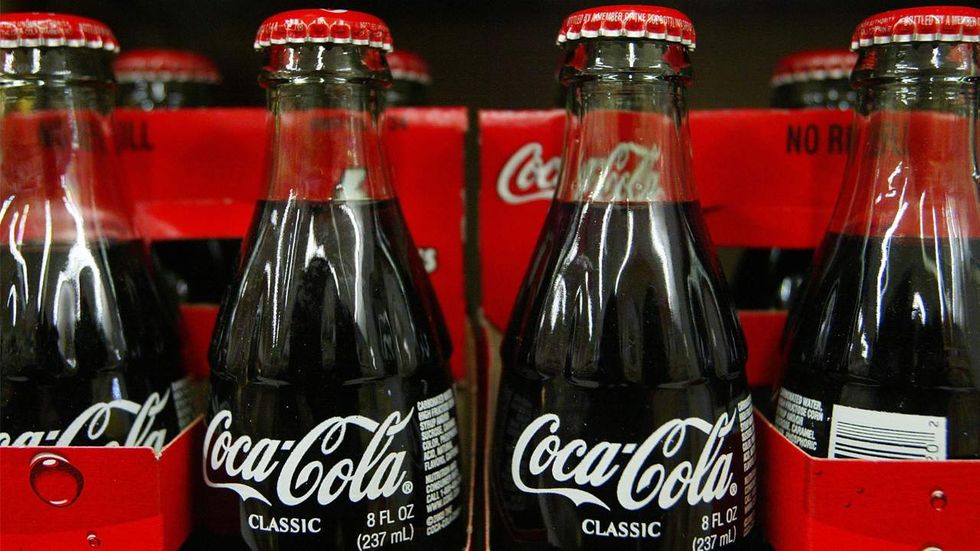
Citing the harm sugary drinks have caused to the African-American community, two black pastors in the Washington, D.C., area filed a lawsuit on July 13, 2017, against Coca-Cola and the American Beverage Association. (Justin Sullivan/Getty Images)

Citing the harm sugary drinks have caused to the African-American community, two black pastors in the Washington, D.C., area filed a lawsuit on Thursday against Coca-Cola and the American Beverage Association, in which they alleged Coca-Cola deliberately misled consumers about the alleged dangers of soda.
The plaintiffs, Pastors William Lamar and Delman Coates and public-health group Praxis, claim in their complaint filed in the D.C. Superior Court Coca-Cola and the ABA engaged in “false, deceptive, and misleading advertising and promotion of sugar-sweetened beverages.”
Lamar, Coates and Praxis say consumers have been duped into believing sugary drinks aren’t so bad for their health by Coca-Cola’s advertising and other outreach efforts. The plaintiffs specifically cite Coca-Cola’s decision to “omit material facts” about the link between sugar and health problems in their advertising and consumers’ lack of knowledge about the dangers of soda.
“Reasonable consumers lack the scientific knowledge necessary to determine that many of Defendants’ representations about sugar-sweetened beverages are false and misleading, including that they omit material facts about the link between such beverages and obesity, type 2 diabetes, and cardiovascular disease,” the complaint states.
"It's become really clear to me that we're losing more people to the sweets than to the streets," Coates said, according to a report by the Washington Post. "There's a great deal of misinformation in our communities, and I think that's largely a function of these deceptive marketing campaigns."
The lawsuit alleges the two pastors have repeatedly tried to teach their congregations about the harmful effects of sugar, but have been stymied by Coca-Cola’s advertising.
“Pastor Lamar’s efforts to provide spiritual guidance to congregant families and the larger community regarding the hazards posed by sugarsweetened [sic] beverages are hampered by Defendants’ deceptive marketing, labeling, and sale of Coca-Cola’s sugar-sweetened beverages,” the complaint states.
“Faced with a growing scientific consensus linking sugar-sweetened beverages to obesity, type 2 diabetes, and cardiovascular disease, Defendants made numerous false and deceptive representations, including … sugar-sweetened beverages’ purported value as healthful sources of hydration for most consumers,” the plaintiffs said in the lawsuit.
Coca-Cola says the plaintiffs' allegations are "factually meritless."
"The allegations here are … legally and factually meritless, and we will vigorously defend against them," Coca-Cola said in a statement.
The plaintiffs’ claims about Americans’ view of sugar is not supported by the available evidence. In fact, most surveys show people believe sugar to be harmful, but choose to consume it anyway. For instance, a Resuters/Ipsos poll of 1,883 adults, conducted in January 2016, found 58 percent of respondents said they have tried to limit their sugar intake within the previous 30 days.
In 2015, a Gallup survey found at least 60 percent of U.S. adults said they “are trying to steer clear” of soda, both regular and diet. Gallup’s results show a marked increase in the proportion of the country that is trying to “avoid” soda. In 2002, the earliest year provided in Gallup’s report, only 41 percent of Americans said they were deliberately choosing to avoid soda products.
Justin Haskins